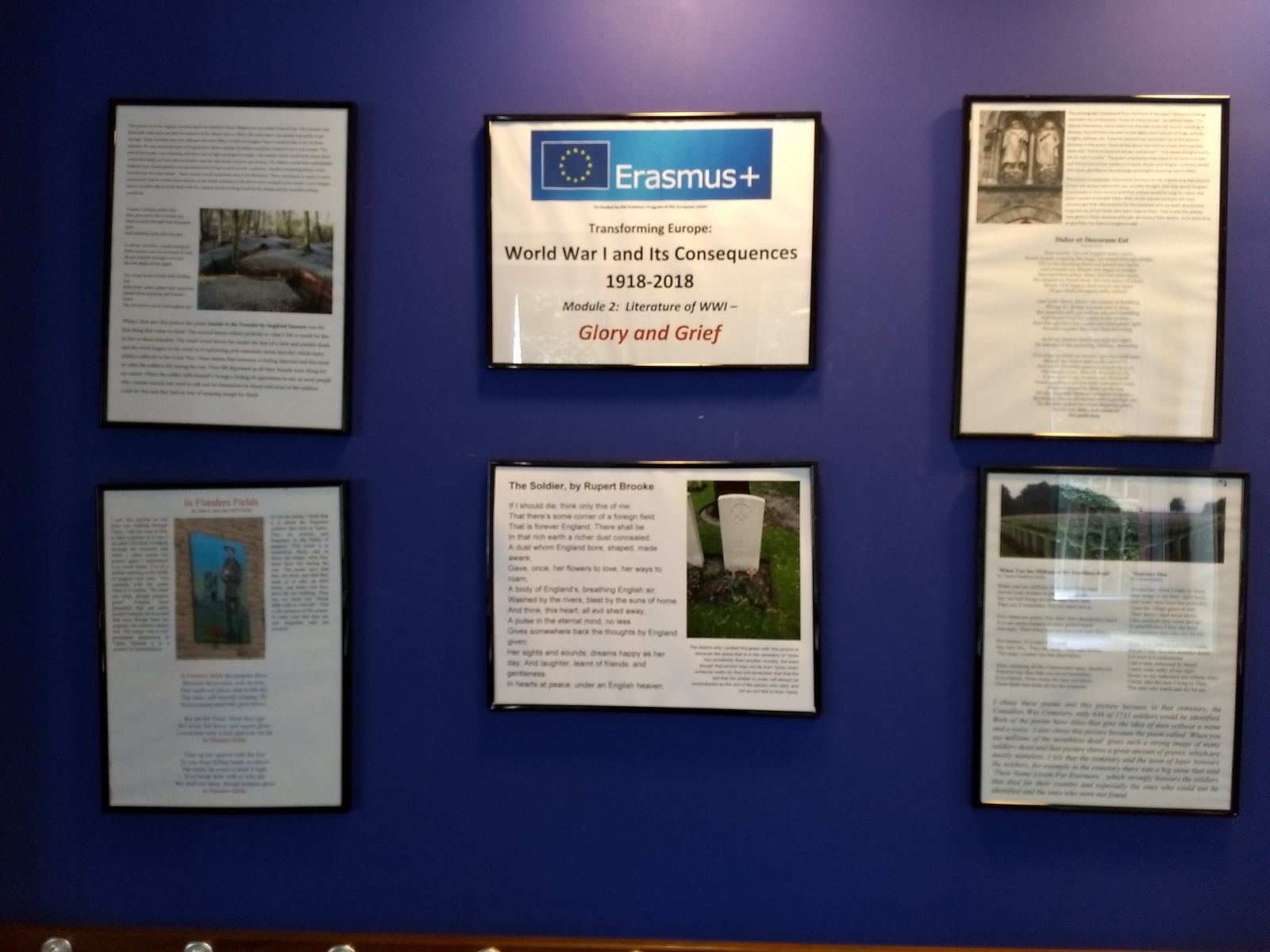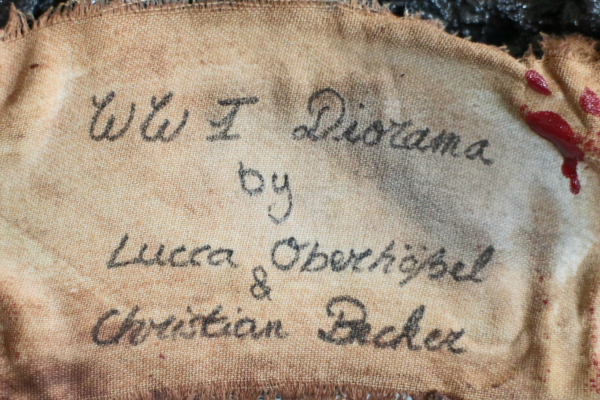
WWI literature deals with the first-hand experience of soldiers on active service and
the hopes and sorrows of those who remained at the home front.
The vocabulary below may give you a glimpse of the reality of war.
1. The Soldiers
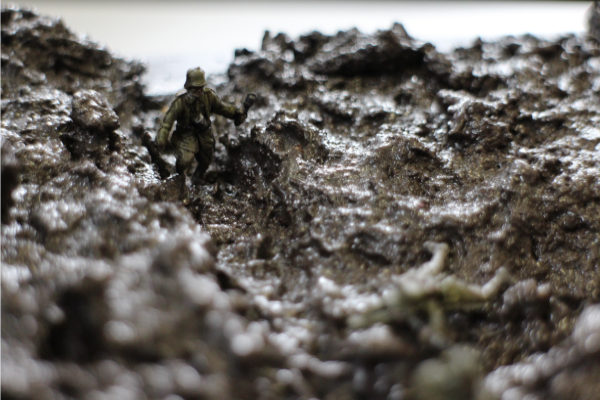 a recruit (a person who has joined the armed forces)
a recruit (a person who has joined the armed forces)
a commanding officer (is in charge of common soldiers)
a general (a military officer of very high rank)
to be wounded
to go missing
to become a prisoner of war
to be killed in action
2. The Battlefield
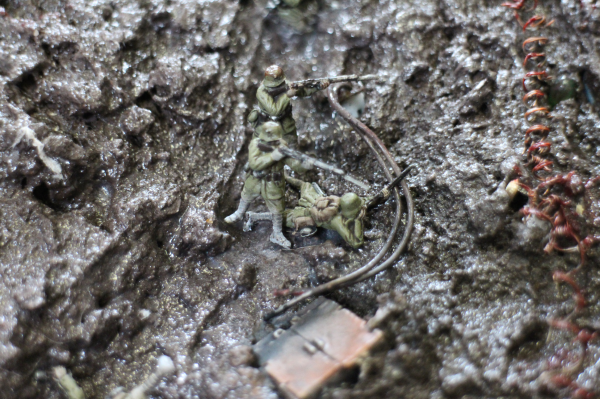 a trench (a deep, narrow hole in the ground
a trench (a deep, narrow hole in the ground
where the soldiers lived day and night)
barbed wire (used to protect the trenches)
no man's land (the area which
soldiers crossed when attacking the other side)
the wet, the mud, the cold
rats and lice
3. The Fighting
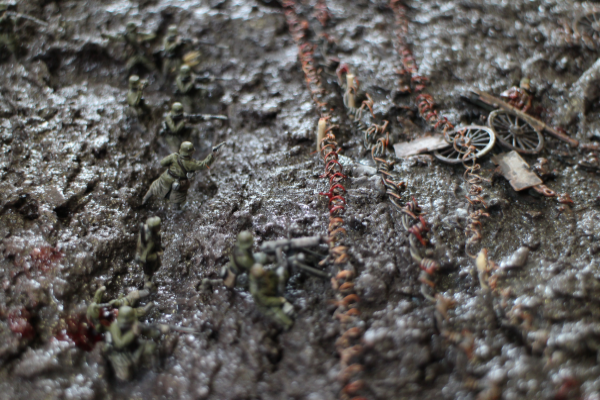 The Allies (Entente) in WWI (the French Republic,
The Allies (Entente) in WWI (the French Republic,
the British Empire and the Russian Empire etc.)
The Central Powers (Germany, Austria-Hungary etc.)
to attack or retreat
to occupy enemy territory
to defeat the enemy or be defeated
to sacrifice someone or something
4. Weaponry
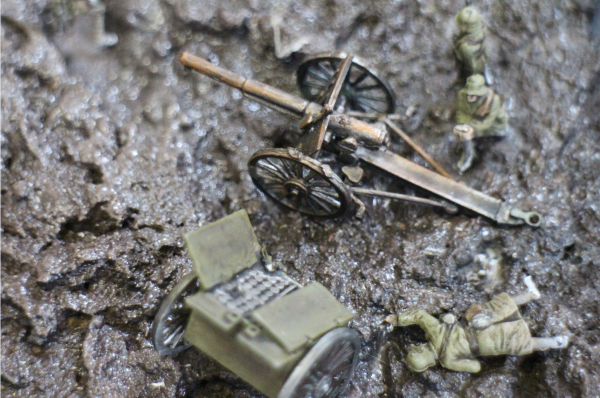 a cannon
a cannon
a machine gun
a flamethrower
a tank
a shell (a large-calibre projectile containing explosives)
a submarine
an airplane or zeppelin
5. Modern Warfare
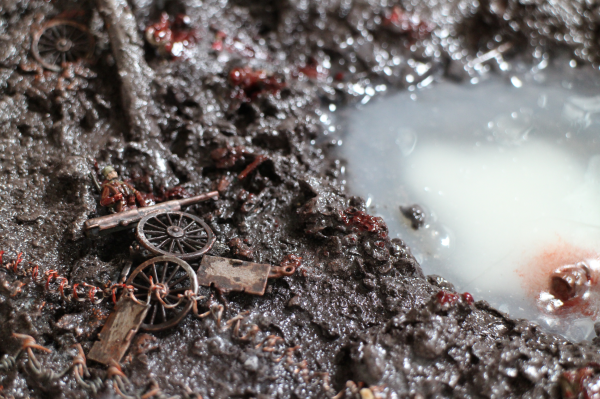 a gas attack
a gas attack
a large-scale use of chemical weapons
weapons of mass destruction
an air raid shelter
casualties (soldiers who were killed or wounded)
futile (useless, ineffective)
6. After the Battle
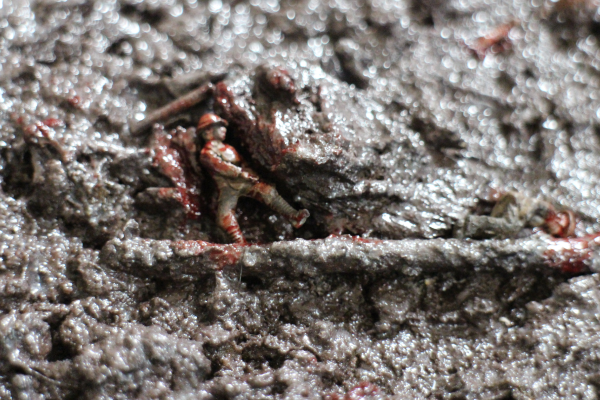 to recover (from one's injuries)
to recover (from one's injuries)
to be maimed (after having lost an arm or leg)
to be haunted by nightmares
to be shell-shocked (traumatised)
the aftermath of the war
empires collapsed, borders were redrawn
suffrage (the right to vote)
7. Peace
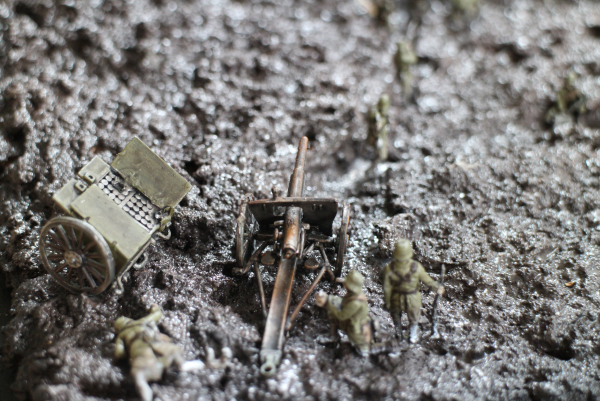 peace negotiations/ treaties
peace negotiations/ treaties
an armistice (end of combat)
a pacifist, peace campaigner
a civilian
to reconcile
a veteran
to commemorate
Illustrations:
Lucca Oberhößel and Christian Becker (Year 12, Goetheschule Essen), WWI Diorama
Netherlands: Photos from Ypres taken by students matched with interpretations of WWI poetry displayed in the school hall:
